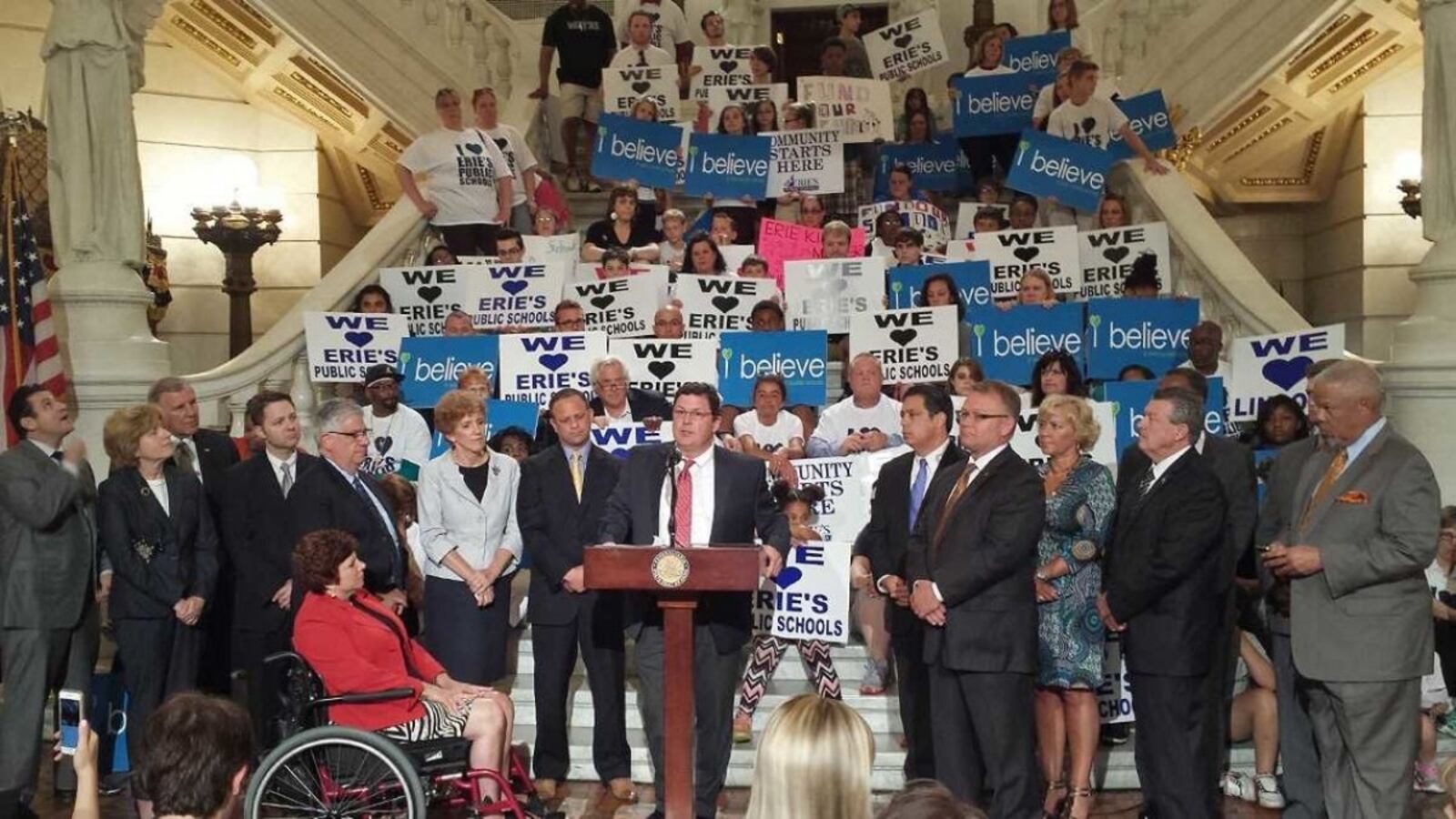This article was originally published in The Notebook. In August 2020, The Notebook became Chalkbeat Philadelphia.
For years in Pennsylvania, school funding coming from state government was criticized as being irrational, unpredictable, and too-tied to backroom politics.
That’s a large part of why many celebrated last year when the state adopted a new student-weighted school funding formula built entirely on objective data.
But there are still times when lawmakers throw that objectivity out the window.
Take for instance the $23 million that lawmakers agreed to funnel into what they call an "educational access program" in this year’s budget, $14 million of which is earmarked for the Erie School District.
Erie has had it rough for many years. It serves a large population of poor, needy students, it has a weak local tax base to draw from, and it suffers from a state government that, on the whole, prioritizes funding other relatively better-off districts.
"For us, we’re in the bottom 2 or 3 percent as far as state and local revenue per pupil," said Erie Superintendent Brian Polito. "So we’re still on the losing end."
In theory, the state’s adoption of the new formula should be a huge boon to Erie. The formula uses objective need factors like poverty levels to allocate state money, and Erie ranks high on those factors.
But because lawmakers have decided to use the formula only to distribute new funding increases — which so far account for about 7 percent of the state’s largest pot of public school money — the outlook for Erie remains grim.
It shuttered two high schools this summer and is still eyeing a major budget deficit.
But the special $14 million allocation through the "educational access" budget line has the district feeling like it could soon be on stable footing.
"That was our state senator Dan Laughlin really advocating on our behalf for that," said Polito. "If that wasn’t there, then we’d be able to make it through this coming school year, but we would end up with another multi-million dollar deficit … so the following year would be almost impossible to manage cash-flow wise."


